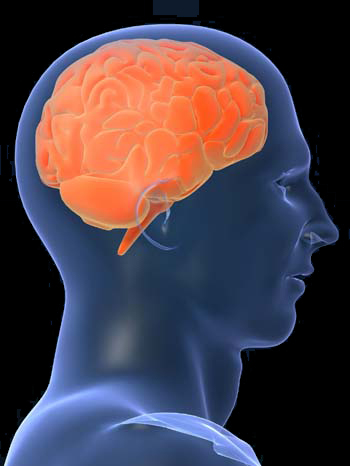Neuroscience And Psychotherapy
The psychotherapy and neuroscience fields provide a great window into the powers of human nature when we understand the interconnectedness between the mind and body. Many problems such as chronic anxiety, panic, verbal tics, anger disorders, insomnia and headaches originate in the brain when the fight/flight/freeze stress reaction is stuck in gear. Our brains are highly influenced by neuroelectrical activity in terms of communication between different parts of the brain. The brain depends on the effectiveness of neuroelectrical activity and connections like a telephone and computer depend on electricity to function. When our brains are functioning optimally we can easily access or "shift gears," like the transmission of a car, from different brain wave frequencies and from one part of the brain to another.

Problems with neuroelectrical activity are evidenced at times by too much or too little neuroelectrical activity in the brain. We overtly experience physical distress reactions, emotional terror and/or despair when this occurs. Overwhelming physiological, cognitive and behavioral symptoms may take over and dominate one's ability to be in the moment. Often individuals are trapped in a fight/flight reaction that is activated by the brain at times when no present danger exists to that individual. Being in such a heighted state of alert, individuals are without the resources to internalize the help they desperately need.
The roots of neurofeedback date back to the 1960's when Sterman, a psychologist, was working on a program for NASA to help control seizures in astronauts. Neuropsychologists have observed that many seizure disorder patients had simultaneous hyperactivity conditions and became calmer with neurofeedback treatment. That led to other psychologists developing protocols to alleviate hyperactivity and other attention deficit disorders. Seizure disorder conditions have special relevance and responsiveness to neurofeedback because they affect the brainwaves that neurofeedback measures.

- is highly effective in addressing the most intractable mental health and physiological conditions.
- provides more flexibility in brain structures and networks.
- enhances the activation of the calming part of our nervous system responsible for relaxation, sleep and digestion.
- allows access to parts of the nervous system which were not accessible previously; thereby activating brain functions that provide greater self-control, emotional awareness and expression.
- when used in conjunction with psychotherapy, reduces overwhelming physiological symptoms and helps patients attain greater emotional stability thus enabling them to benefit more from therapy.


 Problems with neuroelectrical activity are evidenced at times by too much or too little neuroelectrical activity in the brain. We overtly experience physical distress reactions, emotional terror and/or despair when this occurs. Overwhelming physiological, cognitive and behavioral symptoms may take over and dominate one's ability to be in the moment. Often individuals are trapped in a fight/flight reaction that is activated by the brain at times when no present danger exists to that individual. Being in such a heighted state of alert, individuals are without the resources to internalize the help they desperately need.
Problems with neuroelectrical activity are evidenced at times by too much or too little neuroelectrical activity in the brain. We overtly experience physical distress reactions, emotional terror and/or despair when this occurs. Overwhelming physiological, cognitive and behavioral symptoms may take over and dominate one's ability to be in the moment. Often individuals are trapped in a fight/flight reaction that is activated by the brain at times when no present danger exists to that individual. Being in such a heighted state of alert, individuals are without the resources to internalize the help they desperately need. 